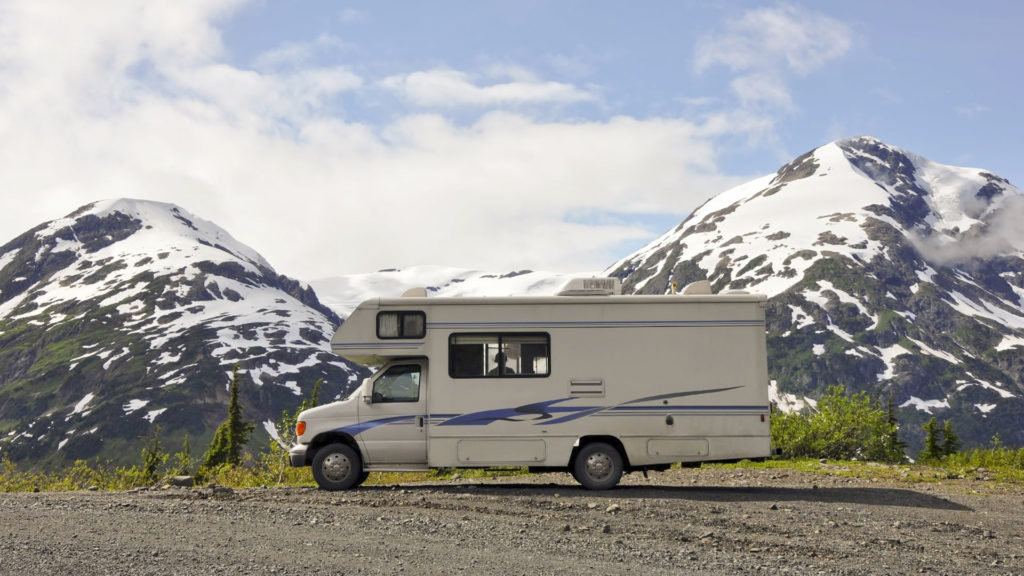Table of contents
- 1. Inspect Tires
- 2. Check Your Batteries
- 3. Clean Your A/C Unit
- 4. Check All The RV’s Lights
- 5. Check the Brakes
- 6. Get an Oil Change
- 7. Water Heater Maintenance
- 8. Inspect Safety Equipment
- 9. Flush and Clean Your Holding Tanks
- 10. Weigh Your RV
- 11. Inspect Your Propane
- 12. Check and Repair Seals as Needed
- The Bottom Line
- Looking for an RV Park to Stay in During Your Trip?
Your RV is more than just a vehicle; it’s your ticket to endless adventures on the open road. Whether it’s a camper, motorhome, fifth wheel, or travel trailer, your RV is your home away from home, and to ensure it stays that way, you need a good maintenance checklist to take care of it. Neglecting RV/camper maintenance can lead to unexpected and costly repairs, potentially spoiling your travel plans. To help you keep your RV in top-notch condition, we’ve put together an RV maintenance checklist. It can be a challenge to keep track of all the maintenance tasks and their schedules, but this guide will simplify the process, ensuring you’re always ready for the next adventure.
1. Inspect Tires
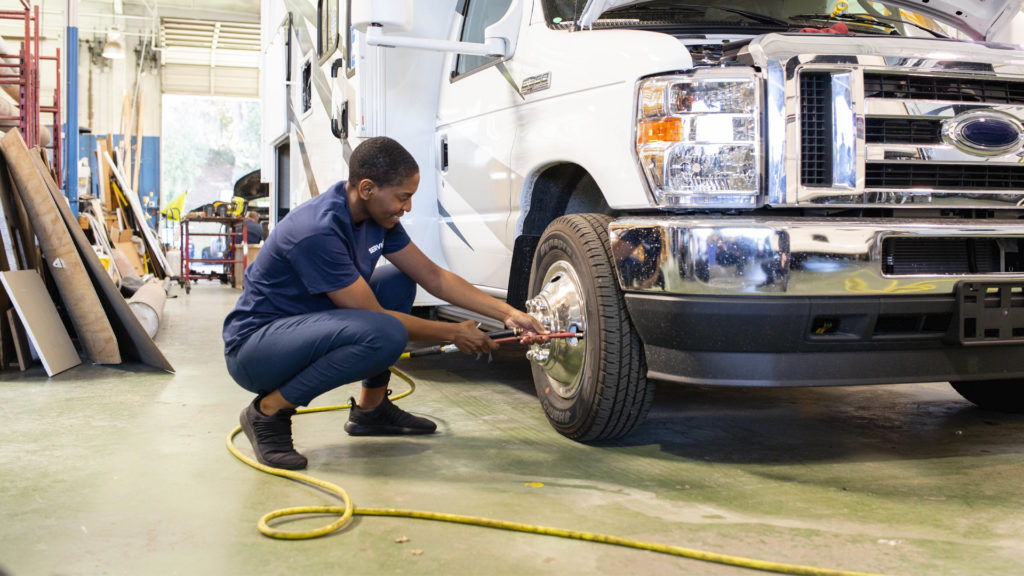
The last thing you want is to find yourself stranded on the side of the road due to a flat tire or a wobbly wheel. To prevent this, it’s crucial to conduct a tire check and tighten your lug nuts before setting out.
Problems with your tires can have serious consequences. Overinflated tires can result in a blowout, potentially leading to damage to your RV or causing a traffic accident. On the other hand, underinflated tires can lead to issues like bent rims, handling problems, and decreased fuel efficiency.
While inspecting your tires, consider the following additional steps:
- Clean off any road tar, oil, and dirt that may have accumulated.
- Inspect the tires for cracks and signs of dry rot.
- Apply a UV-protective tire dressing that is free from alcohol, silicone, and petroleum-based ingredients.
2. Check Your Batteries
Don’t let a dead RV battery spoil your adventure. Make sure to regularly inspect and maintain your battery’s charge. It’s a wise practice to check and replenish the water levels with distilled water monthly. Neglecting your battery can result in a range of issues related to low voltage in your RV, some of which might not be immediately evident, leading to extended and frustrating troubleshooting.
Pro tip: Invest in a voltmeter and become proficient in its use. Electrical troubleshooting accounts for approximately 70% of RV issues.
Additionally, if you intend to store your RV during the winter, it’s advisable to remove the battery and store it in a warm place. Failure to do so could expose your battery to cold weather conditions, potentially causing damage.
3. Clean Your A/C Unit
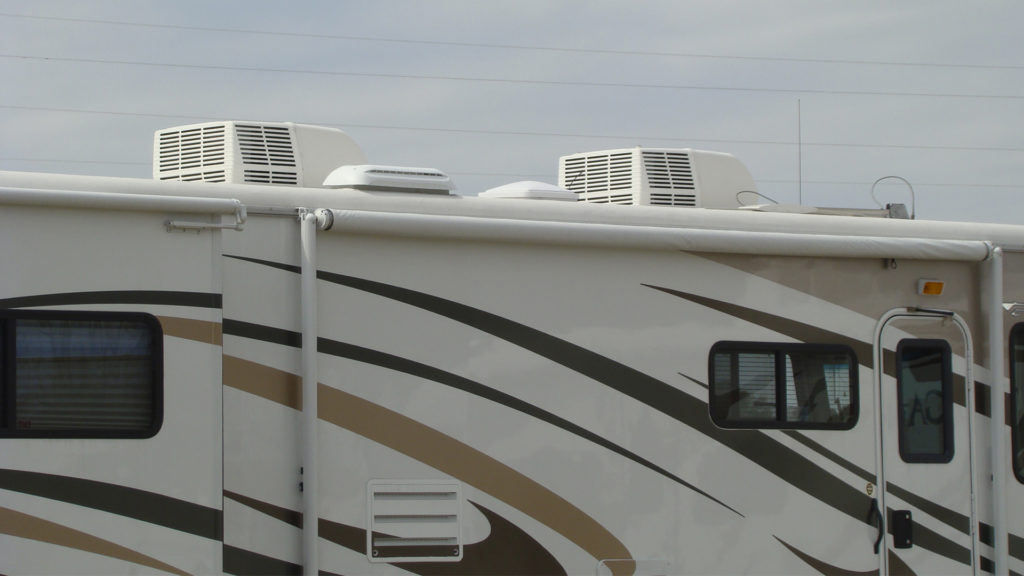
Cleaning the AC unit of an RV is an important maintenance task to ensure efficient cooling and air quality. Here’s a step-by-step guide on how to clean your RV’s AC unit:
Tools and Materials You’ll Need:
- Screwdriver
- Soft brush or vacuum cleaner with a brush attachment
- Mild dish soap
- Water
- Spray bottle
Step 1: Turn Off the Power
Step 2: Remove the Cover
Step 3: Remove Debris
Step 4: Clean the Coils
Step 5: Clean the Filters
Step 6: Clean the Condensate
Step 7: Check the Fan Blades
Step 8: Reassemble and Test
Regularly cleaning your RV’s AC unit not only ensures better cooling and air quality but also extends the lifespan of the unit. It’s an essential part of RV/camper maintenance that keeps you comfortable during your travels.
4. Check All The RV’s Lights
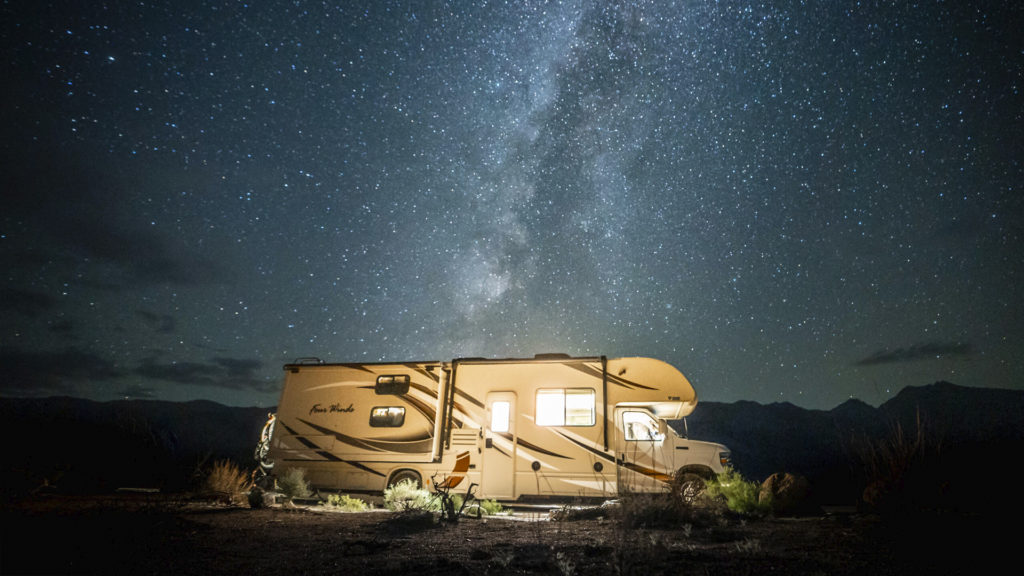
Safety is paramount on the road, and proper lighting is a key component of it. Ensure that all your RV’s lights are working as they should. This includes high beams, brake lights, fog lamps, and turn signals. Replace any bulbs that are burnt out.
5. Check the Brakes
Your RV’s braking system is essential for your safety. Regularly inspect the brakes, including the brake pads and rotors, and make sure they are in good condition. If you notice any issues, have a professional technician service them.
6. Get an Oil Change
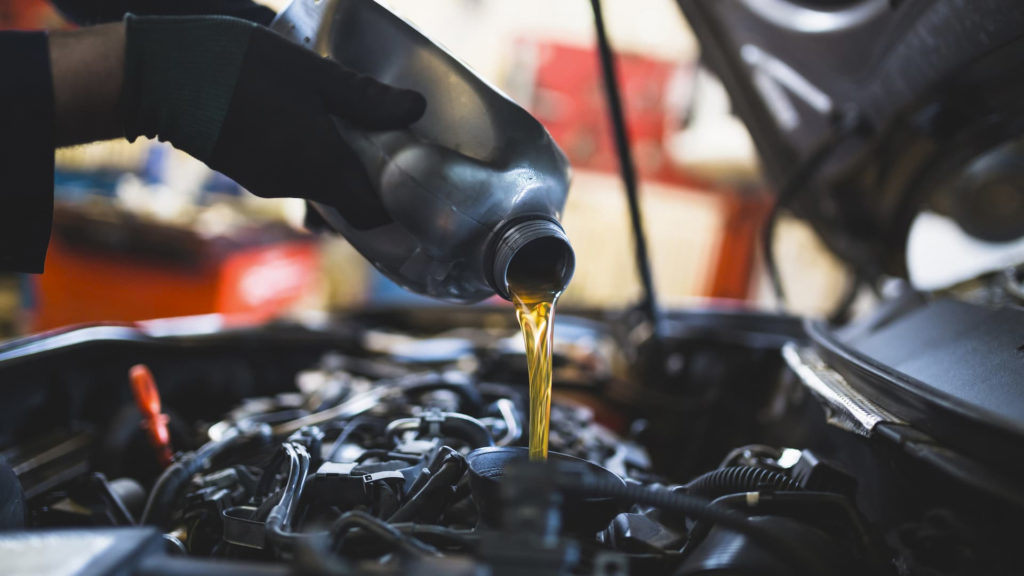
Just like your car, your RV’s engine needs regular oil changes. Check the oil levels and quality, and adhere to the recommended oil change schedule. Proper engine maintenance is essential for keeping your RV running smoothly.
7. Water Heater Maintenance
Another crucial RV appliance that requires attention is the water heater. These should be serviced annually to flush out sediment buildup and prevent potential damage.
8. Inspect Safety Equipment
Safety equipment is non-negotiable when it comes to your RV. Ensure you have a functioning fire extinguisher and gas detector on board. Rechargeable fire extinguishers should be serviced every six years, and gas detectors need regular replacement to ensure they remain effective.
9. Flush and Clean Your Holding Tanks
Your RV has different holding tanks: the fresh water tank, the grey water tank, and the black water tank. Regularly flush and clean these tanks to prevent odors and clogs. Use specialized RV tank treatments to maintain optimal tank health.
10. Weigh Your RV
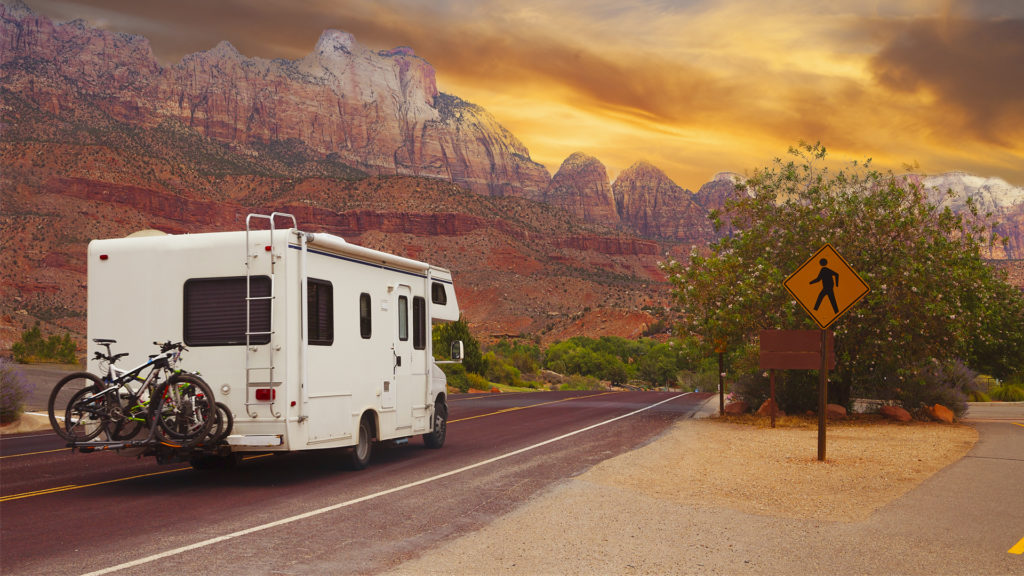
It’s essential to weigh your RV to ensure it’s within its weight limits. Overloaded RVs can lead to poor handling, increased wear on tires, and even safety issues. Weigh your RV periodically and adjust your packing accordingly.
11. Inspect Your Propane
Propane is a crucial energy source for many RV appliances. Regularly inspect the propane system for leaks and ensure the tanks are in good condition. Don’t forget to check the propane levels to avoid running out during your adventures.
12. Check and Repair Seals as Needed
Leaks are an RVer’s worst nightmare. Regularly inspect the seals around windows, exterior compartments, doors, and on the roof for any signs of wear or water damage. Repair or replace damaged seals promptly to prevent costly water-related issues.
The Bottom Line
A travel trailer and RV maintenance checklist is an indispensable tool for anyone who values and cares about their RV or camper and seeks to maintain it in optimal condition. This checklist serves as a practical guide to ensure that every component, from the engine to the appliances, is in top shape. Beyond the convenience and peace of mind that a well-maintained RV brings, there are several compelling reasons to prioritize an RV/camper maintenance checklist:
- Safety First: Safety is paramount when it comes to RV travel trailer maintenance. Regular inspections and maintenance can prevent accidents by identifying and rectifying potential issues with brakes, tires, electrical systems, and more.
- Financial Savings: Proactive maintenance is a cost-effective approach. Preventing problems before they escalate into major repairs can save a significant amount of money in the long run.
- Longevity: An RV is a substantial investment, and proper maintenance can extend its lifespan. This means more adventures and memories for years to come.
- Comfort and Convenience: An RV is essentially a home on wheels. Ensuring that all systems, from plumbing to heating and cooling, are functioning optimally ensures a comfortable and enjoyable travel experience.
- Resale Value: If you ever decide to sell your RV, a well-maintained unit will have a higher resale value, making it a more attractive prospect for potential buyers.
- Reliability: Knowing that your RV/camper is well cared for and maintained gives you peace of mind during your journeys. You can travel with confidence, knowing that your vehicle is less likely to break down in unfamiliar locations.
Looking for an RV Park to Stay in During Your Trip?
In the heart of the natural and cultural splendor of South Dakota, Black Hawk Creek RV Park stands as your gateway to a truly unforgettable adventure. Whether you’re seeking tranquility among the breathtaking landscapes or a thrilling exploration of the area’s diverse attractions, at Black Hawk Creek, we ensure that your journey is nothing short of extraordinary. Book your stay today, and let the adventure begin!

